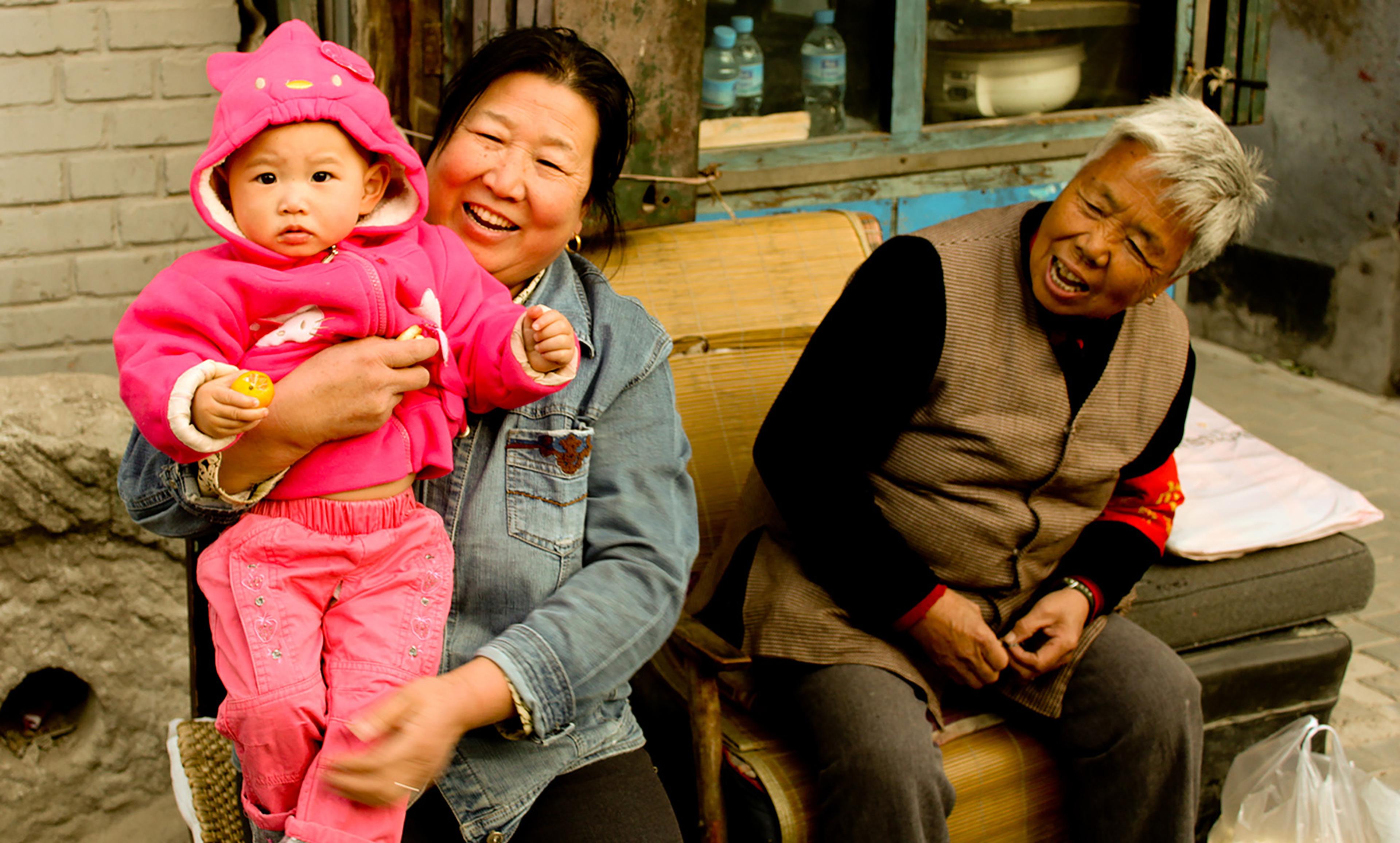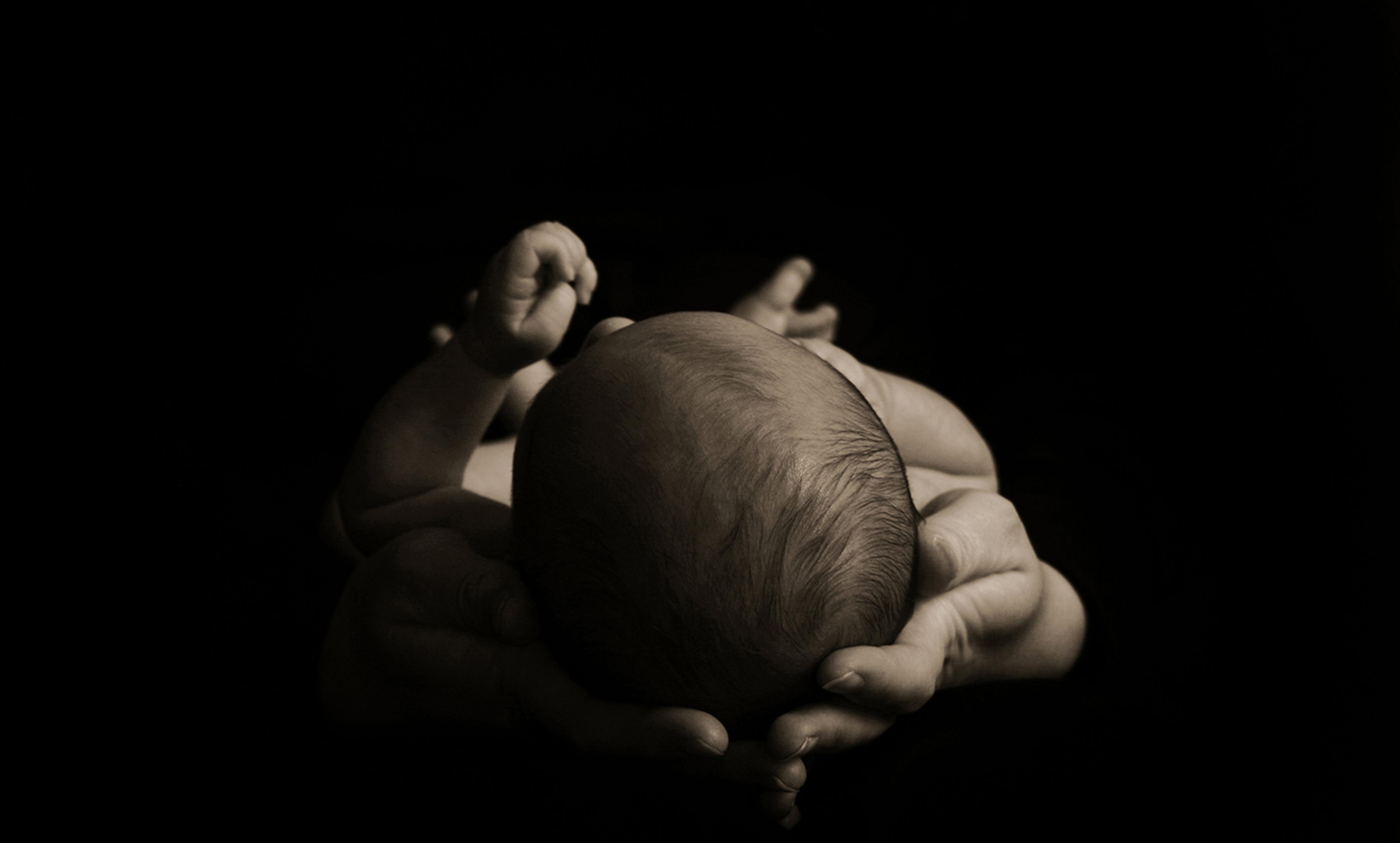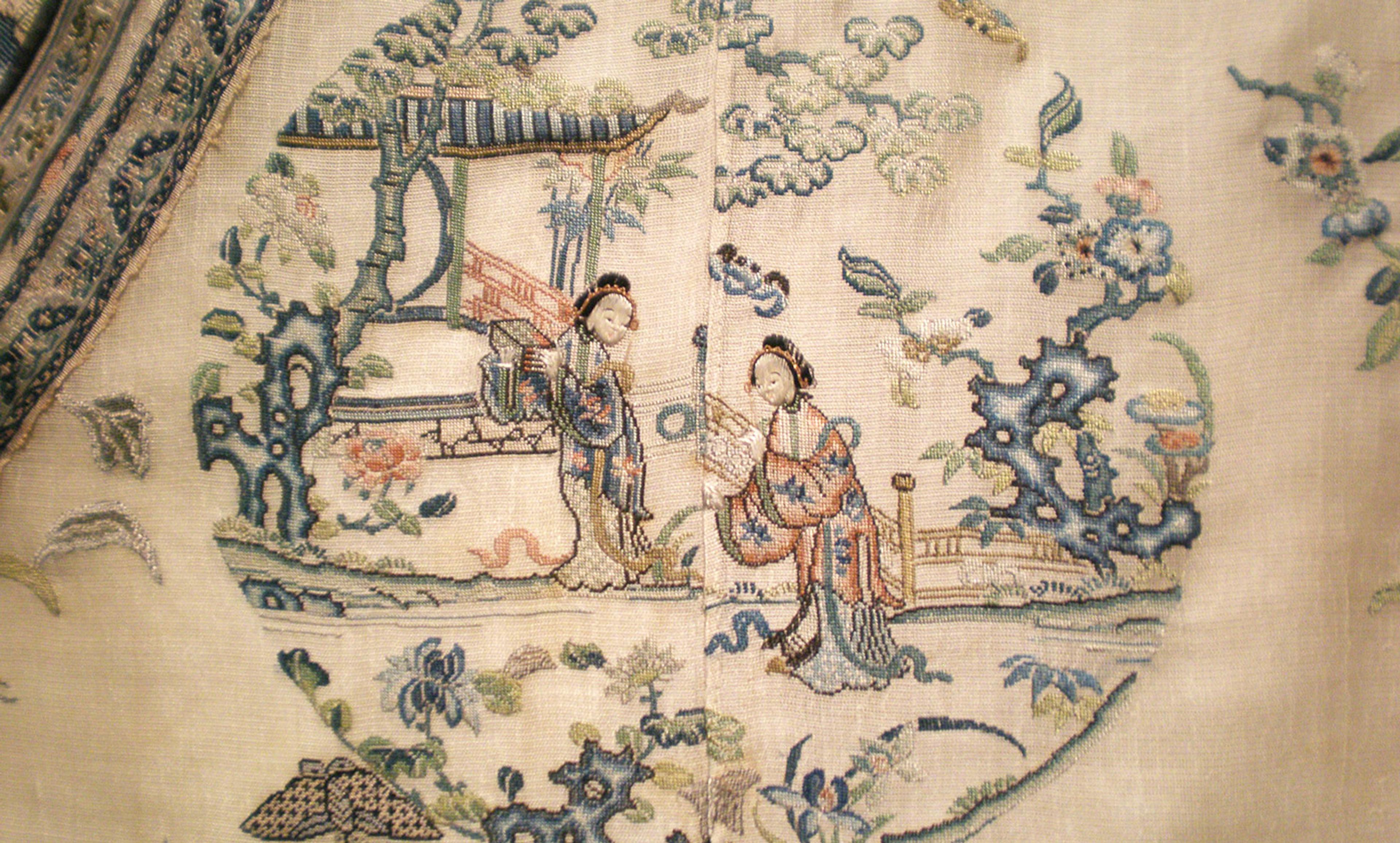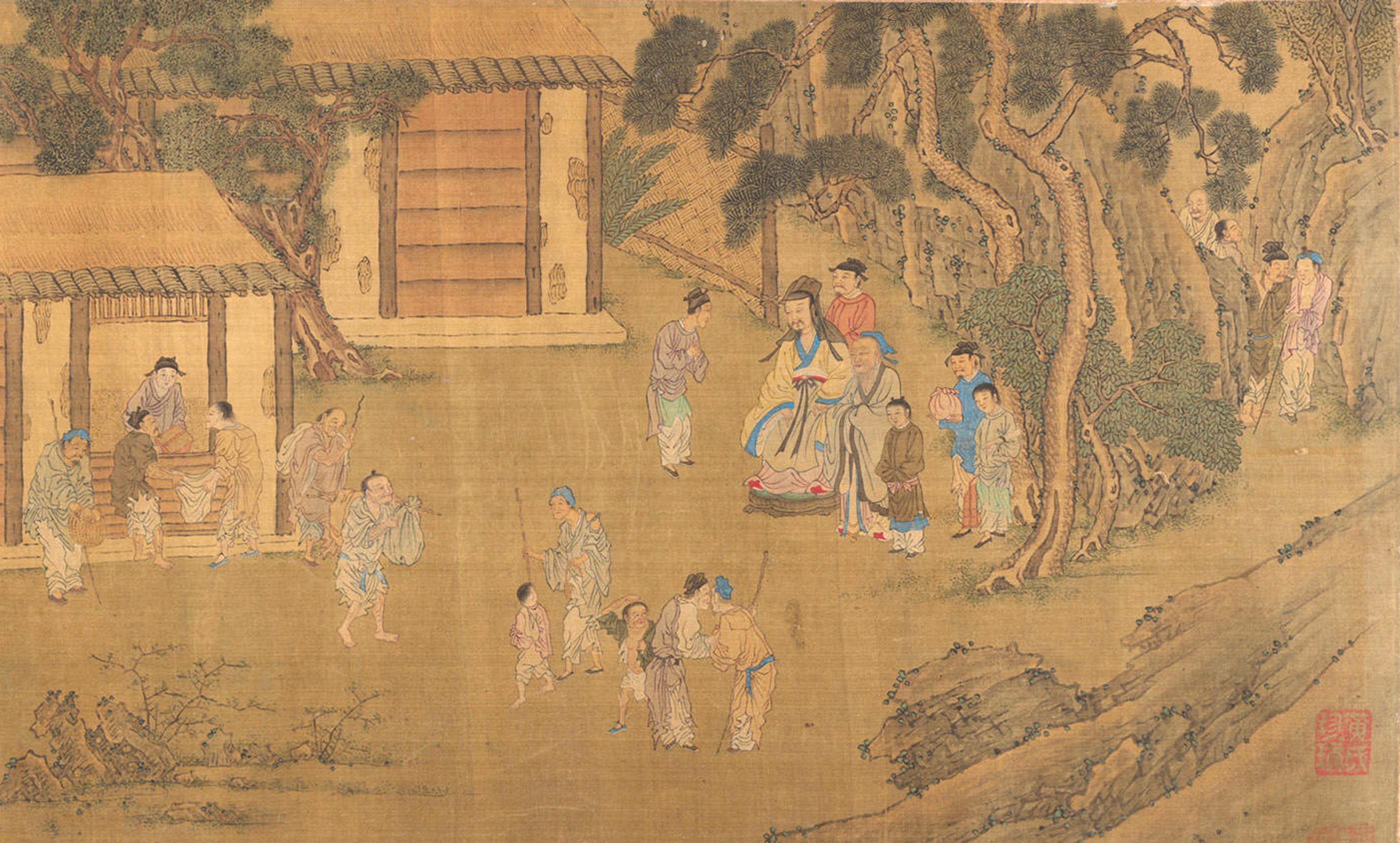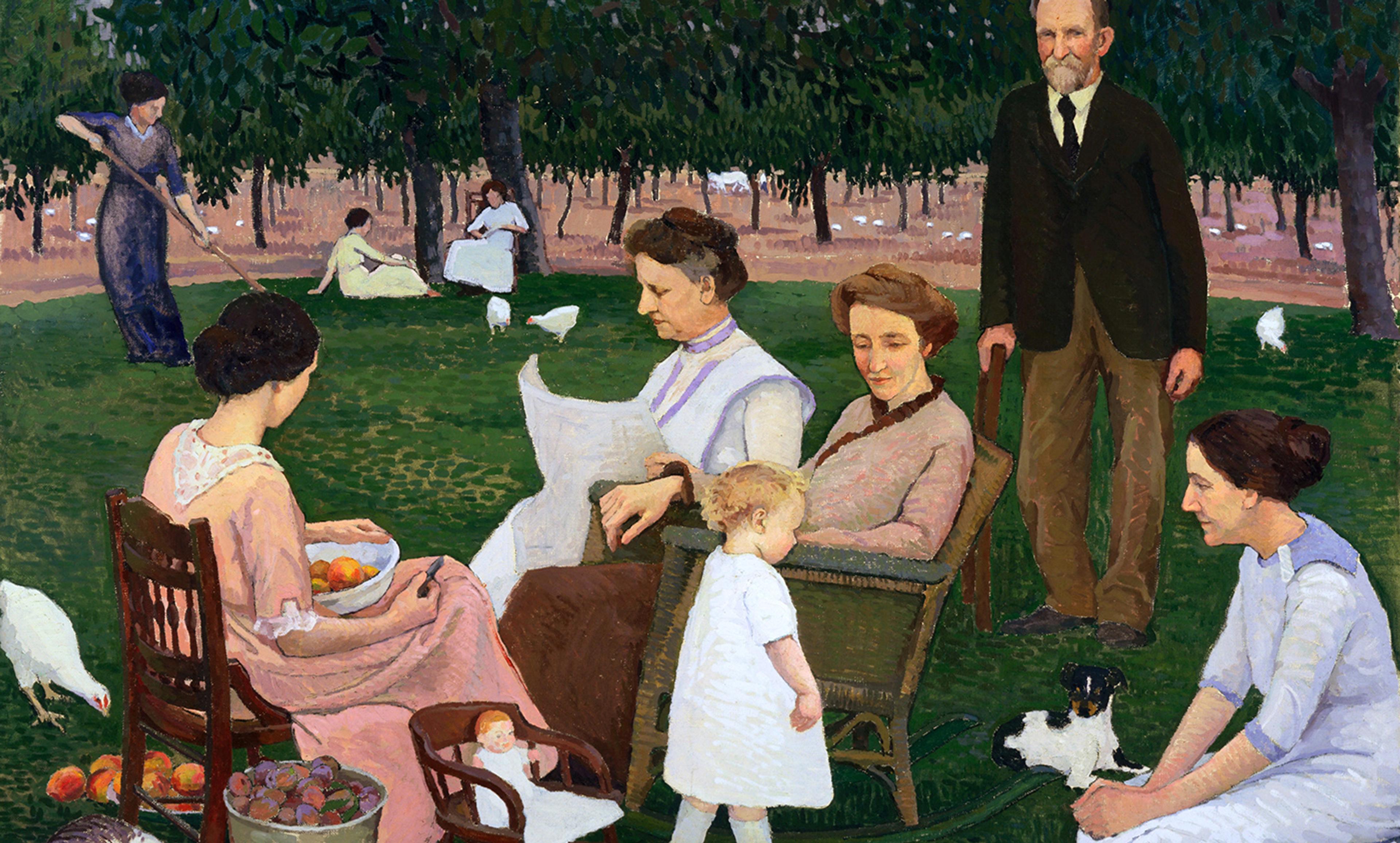Matt Barber/Flickr
From an evolutionary perspective, Confucian filial piety – a system of inheritance – is pretty strange: it requires individuals to prioritise the transfer of resources to parents rather than to children. The strangest thing about the system isn’t that parents aimed for this result, but rather that, for a couple of thousand years, they actually succeeded.
In Chinese, the character 孝 (xiào) represents the virtue of filial piety, or what I have come to think of as morally plastic obedience to parents. The child (子 zi) uplifts the elder (老 lǎo). After Confucius wrote, ‘filial piety and respect for elders are the roots of goodness’ (Analects, 1.2) at the end of the sixth century BCE, this virtue became encoded in texts, displayed in emotion and cognition, and manifest in behaviour for generations.
Its influence later endured due to a system of hiring in Imperial China’s civil service, starting in the Han Dynasty (206 BCE-220 AD), continuing through the Sui Dynasty (581-618 AD), and on up to the fall of the Qing in 1911. Eventually, it became a formal examination system, and aspirants to government positions memorised Early Confucian texts (including the Analects and the commentary written by the Confucian disciple Mencius). Since successful applicants had unprecedented prestige, power and wealth, students (and their parents) were highly motivated to follow the system of filial piety.
The influence continues to this day. High levels of filial piety in China thrive in those most prone to conformity and dependence and, obviously, in people most motivated to care for their parents into old age. It makes sense: cross-cultural studies of parenting practice reveal Chinese parents as more strict and in control.
It’s not surprising that researchers who see Confucianism as a complete social system link filial piety to mating behaviour. Mencius writes that, of the three ways of being a bad son, the most serious is not to have an heir. This marks one of the biggest flashpoints of parent-offspring conflict: psychologists have recently proven that parents prefer their offspring to find mates who maximise parental advantages, such as wealth or being from a good family, whereas children prefer traits in a mate, such as physical beauty, a proxy for genetic quality, that maximise their own advantage for children. (Of course, for their own mates, parents also preferred traits such as physical beauty!) Few decisions are more consequential for our biological fitness than our mating strategy and mate choice. No wonder that these issues produce such heated arguments when they come between loving parents and children. But those (non-Confucian) parents with a teenage daughter who has started dating don’t need psychologists to tell them this.
Any organism created through sexual reproduction will have a complement of genes differentiating it from its parents. This is the origin of parent-offspring conflict. In our species, such conflict begins in the womb, when the placenta secretes hormones to extract more sugars from the mother than the mother’s body would like to give. It is natural. But human culture is capable of bending, if not breaking, nature. Descendants of herders have a gene supporting lactase production, allowing its possessors to take in nutrition from cow’s milk. Others don’t have this gene. As a cultural technology, herding changed our ancestors’ genome and bodies.
One of Confucianism’s secrets is that it is likely responsible, through evolution, for some of the world’s lowest rates of parent-offspring conflict. A good way to assess this claim is by examining the relationship between the mating behaviour of children and the wishes of parents. All other things being equal, only if children, especially sons, internalise their parents’ preferences for their own mates will ‘chastity’, ‘being from a good family’ and the like become traits that sons prize over traits that affect their narrow genetic interests.
David Buss, an evolutionary psychologist at the University of Texas at Austin, found in a study published in the Journal of Cross-Cultural Psychology in 1990 that Chinese men ranked chastity the third most desirable trait after health and desire for children. By contrast, African, Eastern European, Western European and South American groups ranked chastity at or near the bottom of 18 total preferences.
Meanwhile, David Schmitt, an evolutionary psychologist at Bradley University in Illinois and founding director of the International Sexuality Description Project, reports that East Asian men and women from Confucian-diaspora countries exhibit worldwide lows in short-term mating behaviour – that is, they have a particularly low appetite for sexual variety. Given that rates of cuckoldry are, by international standards, exceedingly low in China, the desire for chastity is likely inherited from the preferences of parents. Studies using the Parental Influence on Mate choice scale, developed by the evolutionary social psychologist Abraham Buunk of the Royal Netherlands Academy of Arts and Sciences, show that East Asian parents have almost twice the influence on their children’s mate choice as do Dutch and European Canadians.
Contrary to their biological interests, Confucian East Asians exhibit the highest symmetry between their own mate preferences and their parents’ mate preferences regarding their choice in partner. This gives modern-day Confucians the lowest parent-offspring conflict over the decisions that matter most in life. With authority centralised in the hands of the father or grandfather, historical Tiger Dads used cultural mechanisms to encode and enforce filial piety in their offspring. By withholding funds to pay for a bride, for example, a father could ensure the compliance of sons for whom that prospect could mean total reproductive failure.
This isn’t the only secret influence of Confucianism on cognition, emotion and behaviour, though it might be the next one to fade out. Some Chinese parents today receive so little filial piety from children that the government has created special legal environments allowing parents to sue their children to get it.
